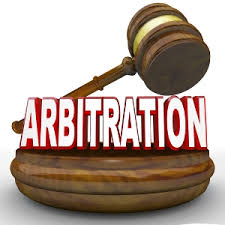This case involves an administrative appeal from discipline imposed on a correctional officer who was fired for falsifying payroll records. The California Supreme Court held that in an administrative appeal from discipline imposed on the officer, an arbitrator may rule upon a discovery motion for officer personnel records, referred to as a Pitchess motion [Pitchess […]
Must Go To Arbitration Even Though One Party Claims The Controversy Is Not Ripe For Adjudication.
The trial court denied a party’s petition to compel arbitration after concluding the petition failed to present an actual controversy sufficiently ripe for adjudication. Here, the parties, both of whom are sophisticated business entities, agreed to a broadly worded arbitration provision that obligates them to arbitrate “[a]ny and all disputes, controversies or claims arising under […]
When The Agreement Is Silent On The Issue, Just As It Is With Classwide Claims, Representative Claims Are Inconsistent With Arbitration.
In a classwide wage and hour action, the court granted the defendant employer’s petition to compel arbitration, leaving it up to the arbitrator to decide whether the agreement contemplated classwide and/or representative claims arbitration, or whether only the named plaintiff’s individual claim would be resolved in the arbitration. The employer filed a petition for writ […]
Another Creative Declaratory Relief Action…This One Concerning Who Makes A Decision, The Court Or The Arbitrator.
An employee filed a wage and hour claim. His employer filed a declaratory relief action alleging its arbitration with the employee required the employee’s wage and hour claims to be arbitrated on an individual basis rather than classwide. The employee petitioned the trial court to order the employer to submit its declaratory relief claims to […]
Final Award Does Not Mean Revised Final Award.
In an underlying arbitration proceeding, the arbitrator initially issued a “Final Award” denying a request for an award of attorney fees by one of the parties. The arbitrator later modified the Final Award to include a fee award, and issued a “Revised Final Award.” The trial court confirmed the Revised Final Award. In reversing, the […]
Arbitrator’s Disclosure Obligations And Motion To Vacate.
In Dornbirer v. Kaiser Foundation (2008) 166 Cal.App.4th 831, [83 Cal.Rptr.3d 116], the arbitrator in a dispute between a patient and her medical provider (Kaiser) disclosed his prior participation in several matters involving Kaiser and its legal counsel. The disclosure statement omitted multiple pieces of information required under Code of Civil Procedure section 1281.9, including […]
Arbitration Agreement Just A Click Away.
Pursuant to an arbitration clause located on a “Terms of Use” hyperlink on its website, the national bookseller defendant petitioned to compel arbitration in a class action alleging deceptive business practices. The district court denied the petition, finding plaintiff did not unambiguously manifest assent to the arbitration provision contained on the website. The Ninth Circuit […]
Motion To Compel Arbitration Denied.
In a breach of personal service suit, the trial court denied defendant employer’s petition to compel arbitration. The collective bargaining agreement’s grievance procedure consists of three steps. Step 1 allows the union or an employee to resolve a grievance by discussion with the supervisor. Step 2 permits resolution of the grievance if the union is […]
Petition To Compel Arbitration Denied.
In a wage and hour claim, a plaintiff signed an agreement with her employer. In the 2001 Agreement, the parties agreed to mediate “any dispute arising out of” employment, except “workers’ compensation claims, unemployment insurance[,] and matters governed by the California Labor Commissioner[.]” The arbitration provision provided as follows: “Arbitration. In the event mediation does […]
Death Knell Doctrine Applied.
The trial court dismissed plaintiff’s class claims with prejudice, and granted defendant’s motion to compel plaintiff to arbitrate his individual claims. Under the death knell doctrine, the appellate court reversed because “the trial court erred by deciding the issue whether the parties agreed to class arbitration, and that the court should have submitted the issue […]
- « Previous Page
- 1
- 2
- 3
- 4
- 5
- …
- 12
- Next Page »







